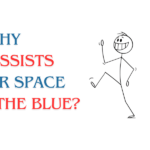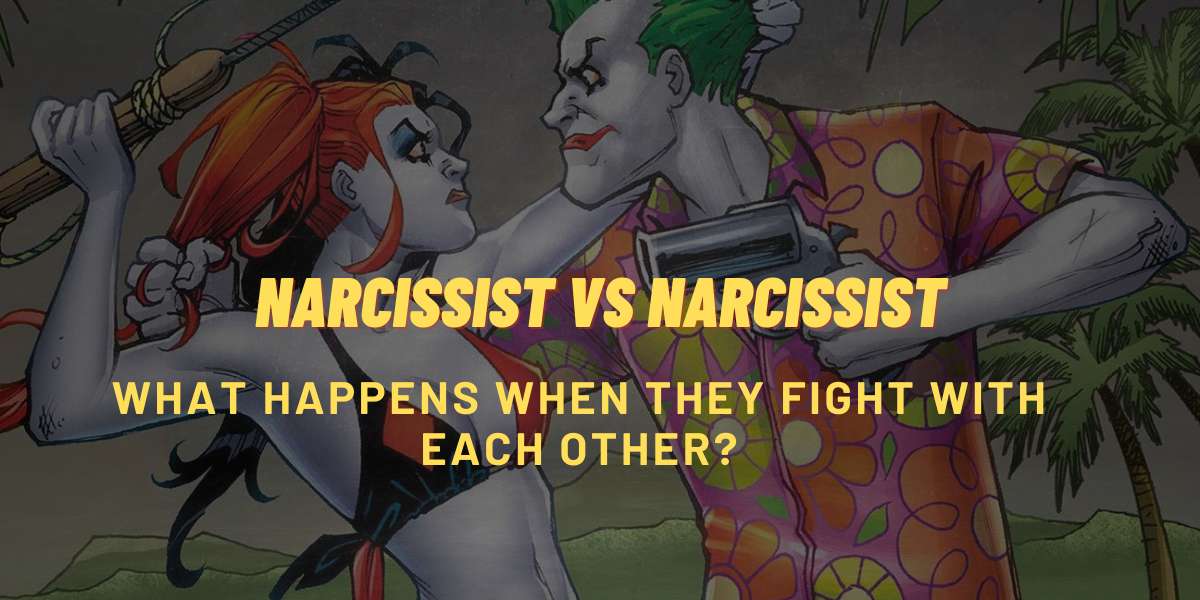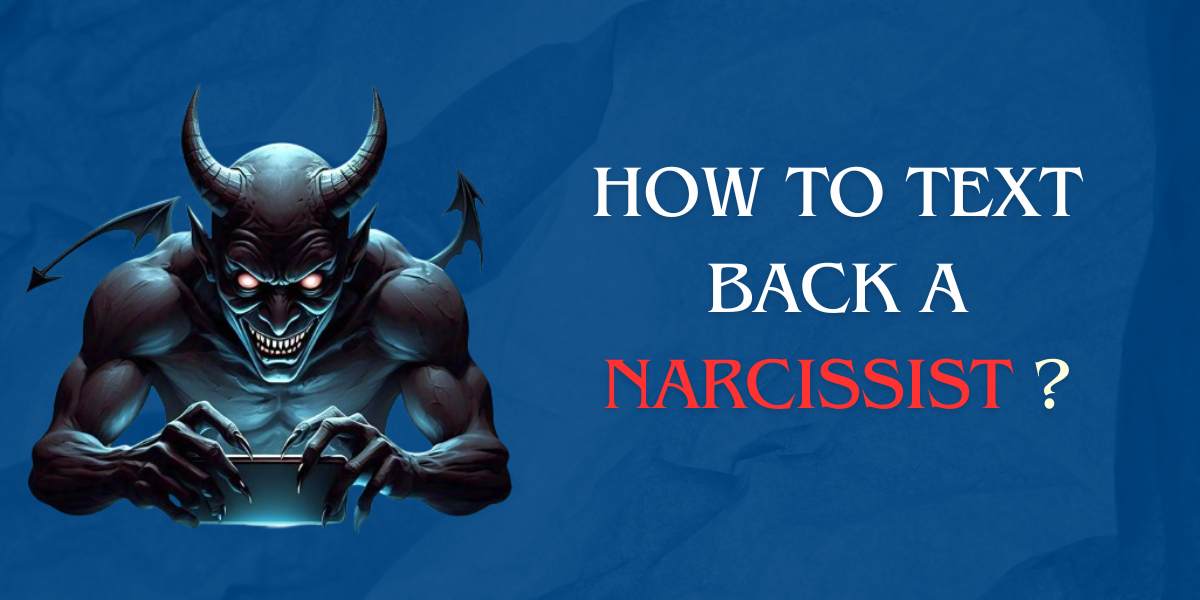Narcissist vs Narcissist, See what happens when two narcissists fight with each other. How do their opposing egos and manipulative behavior works?
When you see a narcissist vs narcissist fight going on, say a fight between your parents who are both narcissists, you must know the conflicts that can arise between individuals with narcissistic personality disorder and react accordingly.
What happens When two narcissists meet?
When two individuals with narcissistic personality disorder meet, they may initially be attracted to each other due to their mutual feelings of grandiosity and sense of self-importance. However, over time, conflicts may arise as they both compete for power, control and attention. Ultimately, the relationship may become dysfunctional, as both individuals struggle to maintain their inflated sense of self and struggle to feel superior to the other.
Common things that occur between two narcissists:
- Lack of empathy: Both individuals may have difficulties understanding each other’s feelings and perspectives, leading to a lack of empathy in the relationship.
- Competition: The competition between two narcissists may escalate and lead to manipulation, belittling, and criticism.
- Difficulty in compromise: Narcissists often have difficulty compromising and may struggle to resolve conflicts.
- Inability to admit fault: Both individuals may struggle to admit fault or take responsibility for their actions, leading to persistent conflicts.
- High risk of ending: The relationship may eventually become toxic and may end abruptly or in a volatile manner.
Also read, What happens when two narcissists fall in love?
Narcissist vs Narcissist
The term “narcissism” is often used to describe individuals with excessive self-love and a strong sense of entitlement. However, there are different types of narcissistic personality disorder, each with its own unique characteristics and traits. When two different types of narcissists find themselves in conflict, it can lead to a big emotional tension between the two. Let’s see how conflicts may happen between the different types of narcissists.
Before getting into the article, we want you to know this platform is created with the motive that you can vent out your emotions through the comment section of the articles you relate to. You can either comment and respond to the people you relate to and also register with Udante if you want to have a private and friendly conversation with us for free.
1. Grandiose Narcissist vs Vulnerable Narcissist
A grandiose narcissist is characterized by extreme confidence, arrogance, and a tendency to dominate others. A vulnerable narcissist, on the other hand, is more sensitive to criticism and has a deep-seated fear of rejection.
When these two types of narcissists find themselves in conflict, it can quickly escalate into a power struggle as each individual tries to assert their dominance. The grandiose narcissist may seek to prove their superiority by belittling the vulnerable narcissist, while the vulnerable narcissist may respond with anger and defensive behavior.
This type of conflict may also involve manipulative tactics, as each individual seeks to maintain control and prove their worth. However, the person with grandiose narcissism will more likely have the upper hand against vulnerable narcissists who are prone to look weak and fragile to gain control over others.
2. Covert Narcissist vs. Overt Narcissist
A covert narcissist is characterized by a tendency to manipulate and control others through subtle and passive-aggressive tactics. On the other hand, overt narcissist is more obvious in their need for attention and admiration. When these two types of narcissists find themselves in conflict, the covert narcissist may use their subtle tactics to undermine the overt narcissist. In contrast, the overt narcissist may respond with explosive and aggressive behavior.
This type of conflict can be particularly toxic, as the covert narcissist’s passive-aggressive behavior can create a sense of confusion and instability, while the overt narcissist’s outbursts can escalate the situation and lead to further harm.
3. Covert Narcissist vs Vulnerable Narcissist
When a covert narcissist and a vulnerable narcissist have a conflict, it can result in a hideous and covertly toxic. The covert narcissist, who tends to manipulate and control others through passive-aggressive tactics, may use subtle ways to undermine the vulnerable narcissist.
The vulnerable narcissist’s fear of rejection and sensitivity to criticism can lead to an intense reaction to the covert narcissist’s undermining tactics. However, the covert narcissist’s manipulative behavior can cause the vulnerable narcissist to feel constantly unstable and unsure of what is happening, leading to further stress and anxiety.
In this type of conflict, each individual may struggle to understand the other’s perspective and may engage in further manipulative behavior in an attempt to maintain control and prove their worth. This can result in a vicious cycle of tension and conflict that can cause significant harm to both individuals and potentially those around them.
4. Grandiose Narcissist vs Overt Narcissist
When a grandiose narcissist and an overt narcissist fight, it can result in a battle for power through extreme arrogance, aggression, and a desire to dominate.
The grandiose narcissist, who is characterized by their extreme confidence and a need to control and dominate others, may seek to prove their superiority over the overt narcissist, who is also known for their need for attention and admiration. This can lead to a volatile exchange, with each individual trying to assert their dominance and prove their worth.
The overt narcissist, who is more upfront about their desire for admiration, may react to the grandiose narcissist’s attempts to impose dominance with aggressive and hostile behavior. In turn, the grandiose narcissist may reply with callous or condescending conduct, escalating the issue further.
This type of conflict can be highly destructive, as both individuals may lack empathy and engage in manipulative and aggressive behavior in an attempt to maintain control. The result can be a toxic and unhealthy dynamic that can have serious consequences for all involved.
5. Malignant Narcissist vs Communal Narcissist
When a fight rises between a malignant narcissist and a communal narcissist, it can become a never-ending drama, Ego, and abuse. The malignant narcissist, who is characterized by extreme cruelty and a lack of empathy, may seek to exploit and manipulate the communal narcissist, who is known for their desire for connection and community.
The communal narcissist’s desire for harmony and connection can lead them to be vulnerable to the malignant narcissist’s manipulative tactics. Anyways, the malignant narcissist may view the communal narcissist as weak and seek to exert control and domination over them.
This type of conflict can result in serious harm, as the malignant narcissist may engage in abusive and manipulative behavior, while the communal narcissist may struggle to understand and respond to the situation.
6. Communal Narcissist vs Vulnerable Narcissist
When a communal narcissist and a vulnerable narcissist fight with each other, it might become an emotional zig-zag for both. The communal narcissist, who values connection and community, may struggle to understand the vulnerable narcissist’s fear of rejection and sensitivity to criticism.
Likewise, the vulnerable narcissist may feel constantly threatened by the communal narcissist’s desire for attention and admiration. The vulnerable narcissist’s fear of rejection and sensitivity to criticism can lead to an intense reaction to the communal narcissist’s attempts at attention-seeking behavior. However, the communal narcissist’s desire for connection and community can cause the vulnerable narcissist to feel constantly unstable and unsure of their place, leading to further stress and anxiety.
How to react when two narcissists fight with each other?
If you find yourself in the middle of this type of conflict, it is important to take the following steps to protect yourself:
- Stay neutral: Try to avoid taking sides and avoid engaging in the conflict. Instead, focus on staying calm and neutral, and don’t get drawn into their arguments or insults.
- Keep your distance: If possible, physically distance yourself from the individuals in conflict. This can help you avoid getting caught up in the situation and reduce your exposure to potential harm.
- Seek support: Consider reaching out to a trusted friend or family member for support and to talk through your experiences. This can help you process your emotions and provide a safe space for you to share your thoughts and feelings.
- Get professional help: If you are feeling overwhelmed by the situation, consider seeking help from a mental health professional. A therapist can help you understand the dynamics of the conflict and provide support and guidance on how to cope.
- Focus on self-care: Take care of your own well-being by engaging in activities that bring you joy and comfort, and make sure to prioritize your own needs.
Remember, it is important to protect yourself when faced with a conflict between two individuals with a narcissistic personality disorder.
Concluding with a note
When an emotionally and physically destructive narcissist vs narcissist fight goes on, it is important to focus on self-care and setting clear boundaries. Stay neutral, physically distance yourself if possible, seek support from a trusted friend or therapist, and prioritize your own well-being by engaging in activities that bring you joy and comfort. Additionally, try to avoid getting drawn into their arguments or insults. By taking these steps, you can protect yourself and work towards a healthier outcome.











